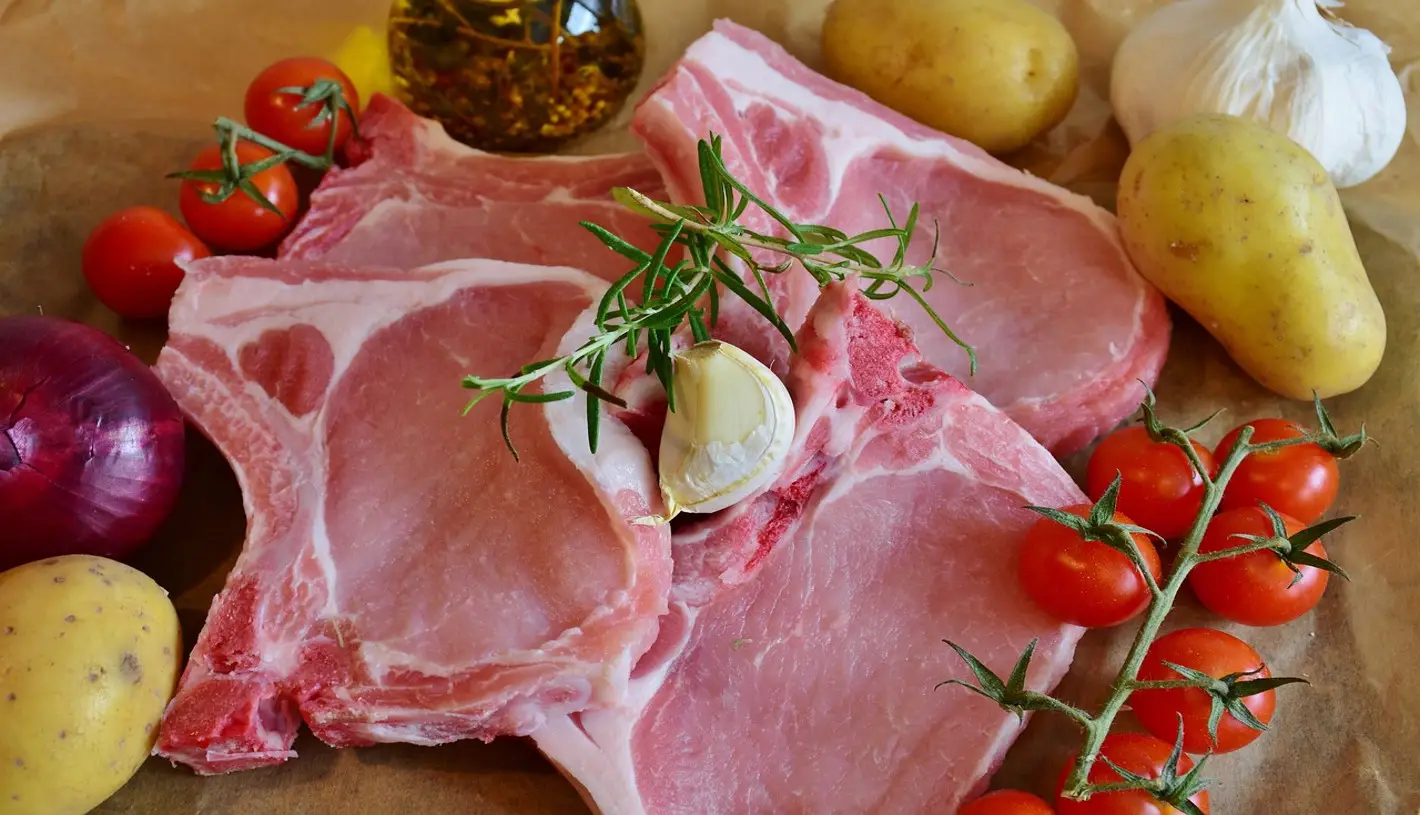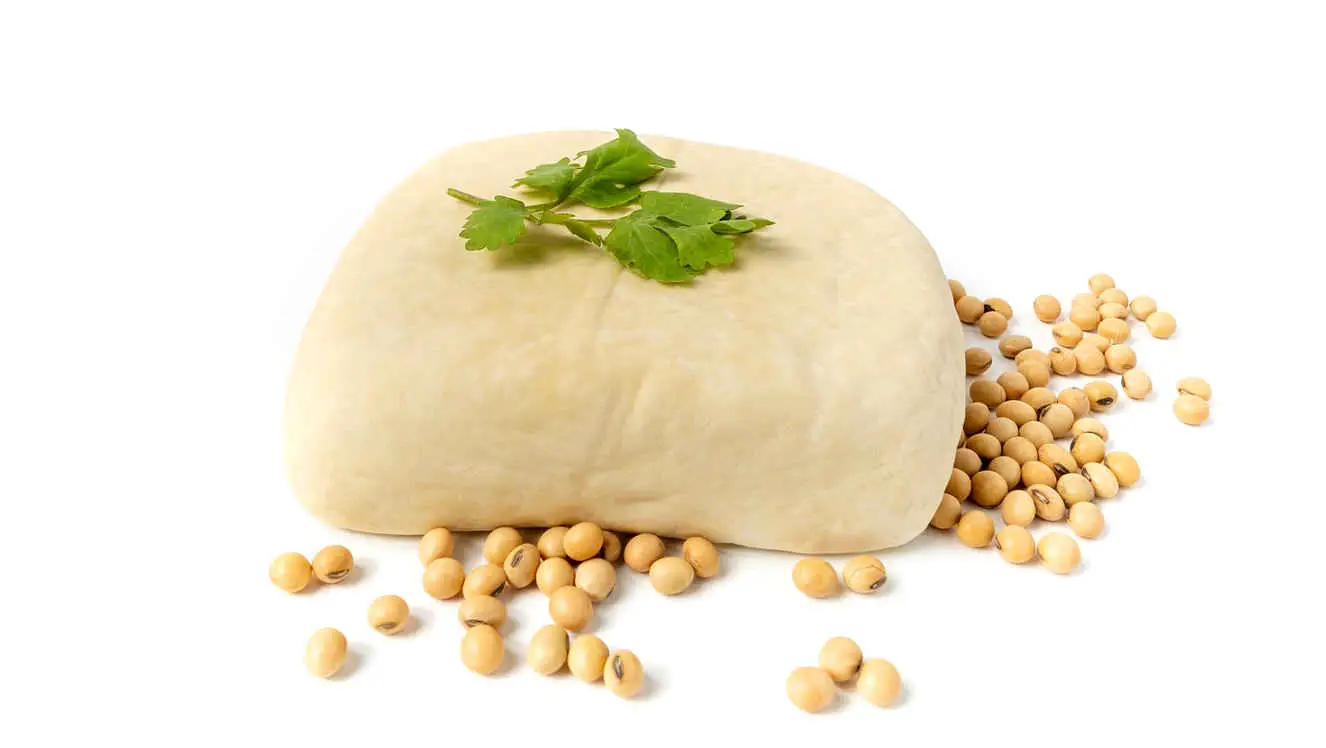Pork Leg Lysine and Arginine Info Sheet
Overview
Pork leg is the hind leg of a pig, which can be roasted, boiled, or cured.Pork leg is a lean and tender cut of meat that contains protein, iron, zinc, and vitamin B12, but it also contains sodium, cholesterol, and saturated fat.
| Name | Lysine (mg/100g) | Arginine (mg/100g) | Ratio |
|---|---|---|---|
| Pork Leg | 1663mg | 1218.1mg | 1.365 |
Pork Leg contains 1663mg of Lysine and 1218.1mg of Arginine per 100g of product.
This means Pork Leg has a high Lysine-Arginine ratio of 1.365.
Because Pork Leg contains slightly more lysine than arginine, increasing its consumption may benefit people who suffer from herpes, as it may boost the immune system.
Lysine Considerations
Pork leg has a very high amount of lysine, which is an essential amino acid that supports protein synthesis, collagen formation, and immune function.
It is one of the nine amino acids that the human system cannot make by itself, so it has to come from the food we eat.
Lysine has multiple functions in the body, such as helping with growth, healing, energy, immunity, and collagen production.
Lysine may also have some effects on the herpes virus, which causes cold sores and genital sores.
Studies have suggested that taking lysine supplements or applying lysine cream may help prevent or treat these infections by blocking the amino acid arginine, which the virus needs to grow.
Arginine Considerations
Pork leg has a high amount of arginine, which is a semi-essential amino acid that plays a role in wound healing, nitric oxide production, and urea cycle.
Arginine can contribute to cold sore outbreaks, which are blisters caused by the HSV-1 virus, also known as herpes.
Arginine aids in the growth of HSV-1, which needs this particular amino acid to multiply and infect cells.
Arginine can be obtained through our diet, and is found in many high-protein foods such as nuts, seeds, and chocolate.
Regrettably, the herpes virus is known to "feed" on arginine, and a diet a great source of arginine compared to lysine may increase the frequency and severity of cold sores and herpes outbreaks.
Lysine-Arginine Ratio
Pork leg has a high lysine-arginine ratio, which may be beneficial for people with herpes simplex virus (HSV) infections, as lysine may inhibit the replication of HSV, while arginine may enhance it.
Both lysine and arginine are important for protein synthesis and other bodily functions.
The two compounds can affect the herpes simplex virus, which is responsible for cold sores and genital herpes, in opposite ways.
Lysine can the human system or stop the virus from reproducing, while arginine can help it propagate.
Eating foods with a high lysine-arginine ratio could help lower the appearance and severity of herpes outbreaks.
Some foods that have a high lysine-arginine ratio are milk, cheese and yogurt, fish, poultry, fruits, and vegetables.
These foods can give the body enough lysine to prevent the virus from taking up arginine, and thus stop its growth and spread.
Dietary Considerations
Red meats are a great source of protein and lysine, but they also contain more fat and cholesterol than poultry or fish.
Red meats can help prevent or treat herpes outbreaks, as lysine can block the activity of arginine.
Red meats also contain zinc, iron, and vitamin B12, which are essential for immune function and nerve health.
Beef and pork are some of the red meats that have more lysine than arginine, with almost as much as poultry.
Despite this, red meats should be consumed in moderation, as they can increase the risk of cardiovascular diseases and some cancers.
Curiously can contract a form of herpes known as pseudorabies.
This virus, though, is specific to pigs and does not cross species to humans.
In other words, you can eat pork and other animal products without any worries about herpes transmission.

For example:
A diverse and nutritious diet that supports your immune system and fights inflammation is essential.
This means you should eat lots of fruits, vegetables, whole grains, lean protein, and healthy fats, and steer clear of processed foods, added sugars, alcohol, and caffeine, which can harm your health.
Consider taking l-lysine supplements, which can help prevent herpes outbreaks and stop a cold sore before it emerges by limiting the availability of arginine for the virus, which it requires to produce a cold sore.
Avoiding foods that can cause allergic reactions or sensitivities, such as gluten, dairy, nuts, eggs, or shellfish.
These foods can trigger inflammation and weaken your immune system, making you more susceptible to outbreaks.
Foods that can boost your immunity and fight inflammation are essential to prevent outbreaks.
Honey, yogurt, aloe vera, and chamomile are some examples of these foods.
They can also soothe your symptoms and help you recover quicker by reducing pain, swelling, and itching.
Check more food information






